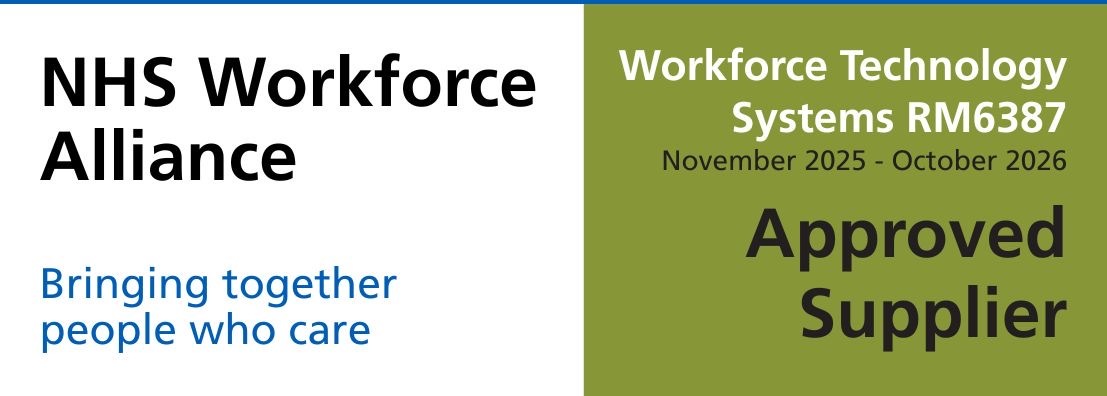
Blog by Flexzo
Why NHS Trusts Need a New Approach to Staffing
NHS Trusts across the UK face a growing problem that affects their bottom line. What started as a quick fix for staffing gaps has turned into a dependency that drains resources and creates financial uncertainty. Many Trusts now rely heavily on temporary staffing agencies, and this habit is costing them more than just money.
When a position needs to be filled quickly, managers often turn to agencies rather than waiting for the slower permanent hiring process. This makes sense in the short term since patient care can’t be put on hold. But over time, this approach has created a situation where a large portion of the workforce comes from agencies, which was never the intention.
Paying Premium Prices Every Day
The most obvious issue with agency staffing is the cost. Agency staff typically cost up to 50% more than permanent employees when you add up all the fees. This extra expense might be worth it for occasional coverage, but becomes a serious problem when agencies provide a significant part of the workforce.
These higher costs affect more than just the staffing budget. Money that could go toward better equipment, improved services, or preventative care programs gets redirected to cover inflated staffing costs instead. This creates a domino effect that impacts overall care quality.
When Budget Planning Becomes Impossible
Perhaps the biggest challenge of relying on agencies is the unpredictability it brings to financial planning. When a large portion of staff comes through agencies, monthly costs can swing wildly based on market rates, availability, and changing demand.
This makes accurate budgeting nearly impossible. Finance teams end up making rough estimates instead of reliable forecasts. Month-to-month variations can completely disrupt carefully planned budgets, forcing Trusts to make difficult decisions about where to allocate resources without proper planning time.
The result is that Trust leaders spend their time reacting to unexpected cost increases rather than strategically directing resources toward planned improvements.
The Vicious Cycle of Staffing Shortages
Over-reliance on agencies can create a negative cycle that makes staffing problems even worse. Permanent staff often notice they’re earning less than agency workers doing the same job. This can lead them to leave their permanent positions to join agencies, creating more vacancies that then need to be filled by, you guessed it, more agency staff.
This pattern not only drives up costs but also disrupts team cohesion and continuity of care. Each departure takes away institutional knowledge and established patient relationships, putting more strain on the remaining permanent workforce.
Planning for the Future Becomes Nearly Impossible
The financial uncertainty created by agency dependency makes long-term planning extremely difficult. Trusts need stability and predictability to make informed decisions about service development, building improvements, and workforce planning.
When staffing costs can change dramatically from month to month, long-term financial projections become unreliable. This uncertainty can delay important decisions about service improvements or expansions, ultimately affecting the quality and accessibility of patient care.
Finding a Way Forward
The challenge for NHS Trusts is clear: how to regain control over staffing costs while ensuring they have enough staff to provide good patient care. The answer isn’t as simple as just cutting agency use, the staffing needs are real and must be addressed.
A comprehensive approach requires both short-term tactics and long-term strategy. Internal staff banks represent one immediate step, allowing Trusts to offer additional shifts to existing staff before turning to external agencies. This provides more predictable costs while maintaining flexibility.
Collaborative staff banks across multiple Trusts can expand this concept further, creating a wider pool of available healthcare professionals while keeping costs predictable. By sharing resources, Trusts can achieve better results that benefit everyone involved.
How Technology Can Help
Technology has become essential in creating more predictable staffing models. Digital platforms can match available staff to shifts more efficiently than manual systems, reducing last-minute agency bookings that often come with premium rates.
AI-powered solutions can analyse past patterns and predict staffing needs, allowing for proactive rather than reactive staffing decisions. These systems can also streamline compliance management, reducing one of the administrative burdens that often drives Trusts toward agency solutions.
Get in Touch
As a collaborative staff bank, Flexzo Ai connects NHS Trusts directly with healthcare professionals without the unpredictable costs of traditional agencies.
If you’re interested in stabilising your staffing costs, improving budget forecasting, and regaining control over workforce planning, we’d love to speak with you. Our team understands the unique challenges facing NHS Trusts and can guide you through implementing a more sustainable staffing approach.
Contact our team today or arrange a free demonstration of our platform.






